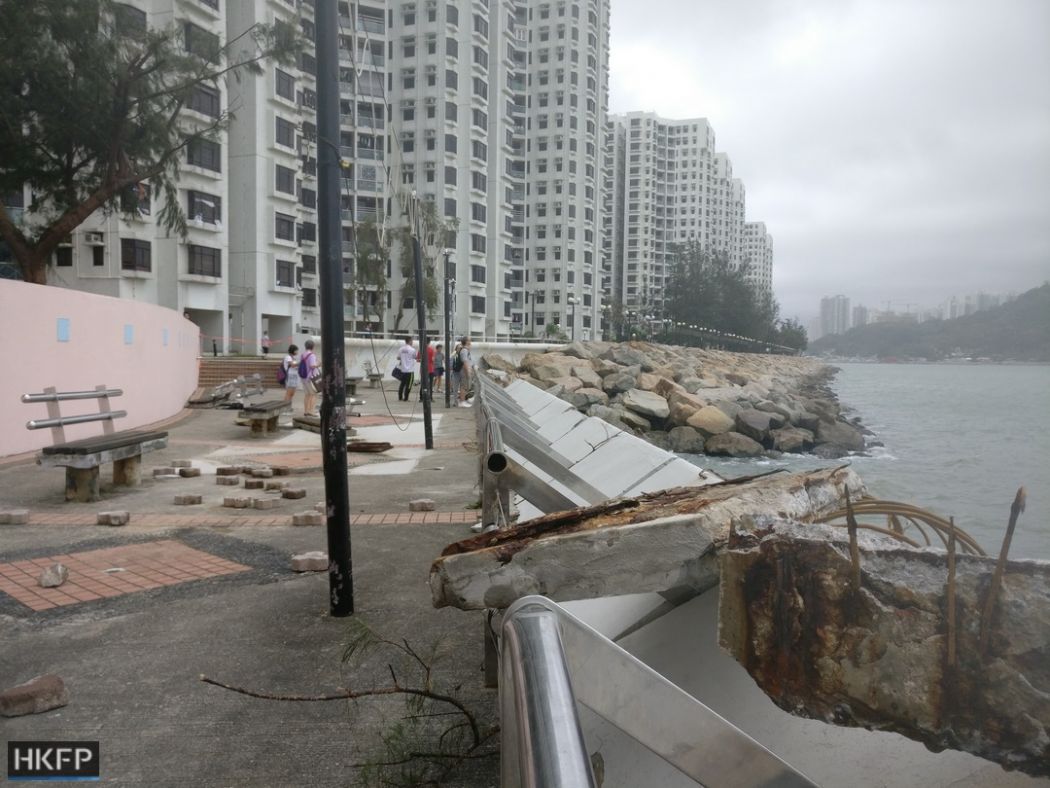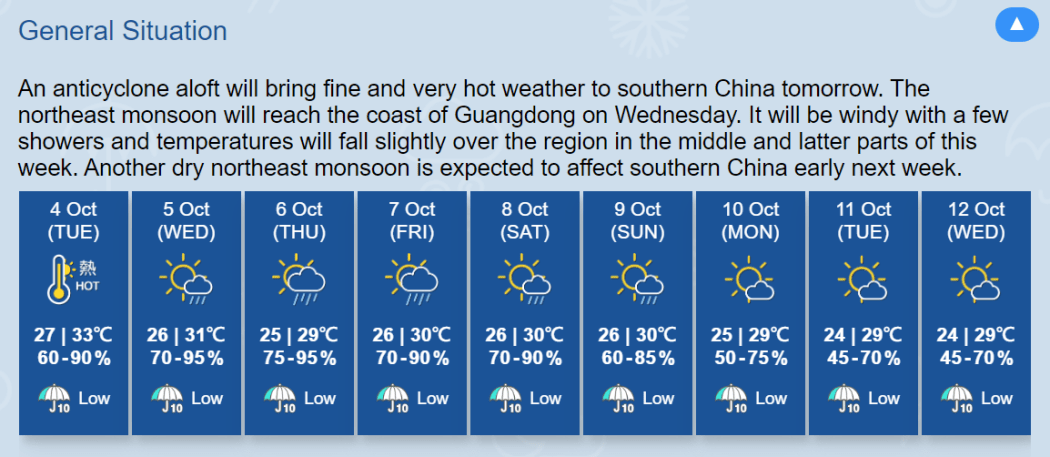Hong Kong sweltered in September, when three temperature records were broken, including the highest maximum temperature for the month since records began in 1884.
On September 13, the Hong Kong Observatory reported a high of 35.9 degrees Celsius. That surpassed the previous record, set a week earlier, which in turn topped a high that had stood since 1963.

Additionally, the daily mean temperature on September 13 and 14 reached 31.7 degrees, while the daily minimum temperature on 14 September was 29.6 degrees, both new records for the month, according to the Observatory.
The mean air temperature for the month was 29.6 degrees, 1.7 degrees warmer than the climatological norm from 1991 to 2020.
It followed a sizzling July, the hottest ever month in Hong Kong, when Tony Ng, a climate campaigner from Greenpeace, told HKFP: “We can see that there’s a trend that Hong Kong is getting hotter and hotter, just like rest of the world.”

The government has committed to achieving carbon neutrality by 2050, a “challenge” by its own admission. In the final policy address of her term, the city’s former leader Carrie Lam said that “Hong Kong must put words into action in addressing the crisis of extreme weather brought by global climate change.”
Decarbonisation efforts would focus on the electricity generation, transport and waste sectors, which together account for most of the city’s greenhouse gas emissions, Lam said. She allocated a budget of about HK$240 billion for then-intangible measures to help combat the climate crisis.
She also, in the same address, announced plans for a major urban development near the city’s border with mainland China, a strategy condemned by environmentalists as counter productive to attempts to preserve the environment.

Her successor, however, has made precious little mention of climate change since assuming office almost 100 days ago, with Wendell Chan, policy research and advocacy officer at green group Friends of the Earth (HK) writing in May that John Lee’s election manifesto was “missing a page on climate change.”
After local media reported last month that Hong Kong’s only drinks carton recycler Mil Mill would have to cease operations by the end of the year after its government-backed landlord did not renew its lease, Lee weighed in. During a weekly press briefing, he said that the government was trying to help the recycling plant find a solution.
“We support environment-friendly industries, but at the same time, land supply is a major concern, therefore we have to strike a balance,” Lee said.
Environmentalists’ eyes will be on Lee’s first policy address on October 9, to see if he redresses the balance.
October began as September finished – with higher than normal temperatures. On Monday, the Observatory issued a “very hot weather” warning, an alert first issued in October in 2017. Highs of 33 degrees Celsius were forecast for Tuesday, a public holiday, while temperatures were expected to fall slightly in the middle and latter parts of the week as the northeast monsoon reaches the southeast China coast, bringing some showers.

Support HKFP | Policies & Ethics | Error/typo? | Contact Us | Newsletter | Transparency & Annual Report | Apps
Help safeguard press freedom & keep HKFP free for all readers by supporting our team

LATEST FROM HKFP
HKFP has an impartial stance, transparent funding, and balanced coverage guided by an Ethics Code and Corrections Policy.
Support press freedom & help us surpass 1,000 monthly Patrons: 100% independent, governed by an ethics code & not-for-profit.










